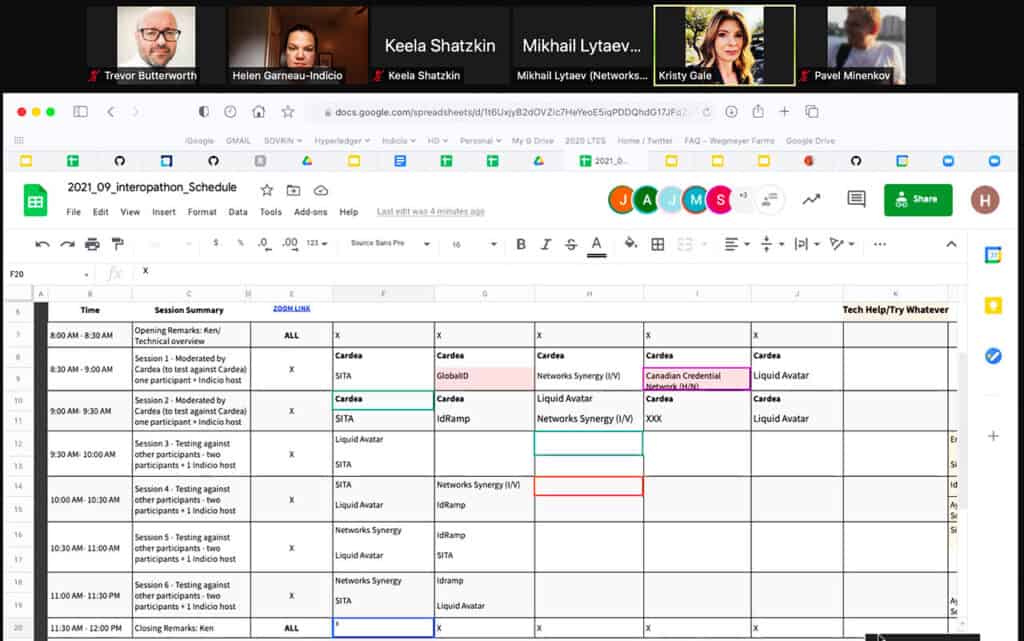Teams from leading companies tested their identity products against a complete Cardea reference implementation, other teams, in a half-day virtual event. Participating companies will demonstrate results at a DemoDay virtual event on Sept 23.
The Cardea Interop-athon was the first event of its kind to focus on increasing interoperability between multiple products and tools from across the open-source community. Indicio, which donated Cardea to Linux Foundation Public Health, stood up a complete reference implementation for participants to test against (as well as each other) over a half-day virtual event. SITA, Liquid Avatar, IdRamp, GlobalID, Canadian Credentials Network, and Network Synergies were all successful—meaning that each company’s identity solutions work with Cardea and can interoperate with each other.
“We were thrilled to see such a great turnout for this event,” said Ken Ebert, co-chair of the Cardea working group and CTO at Indicio. “This is the kind of event that will lead us toward a network of networks for privacy-preserving and fraud-preventing decentralized digital credentials. But even more important, it is a critical milestone for scaling real-world deployments of verifiable credentials for managing COVID-19 testing and vaccination. We’ll be doing more of these to push the technology forward through community collaboration.
The ability to issue private digital health information directly to a person, for them to hold it in a digital wallet and then verify it across multiple businesses and agencies is the modern, safer, and more convenient equivalent of taking paper documents and hand carrying them from office to office. The technology also deftly manages health data privacy law: With verifiable credentials, third parties don’t need to store and manage a person’s personal information for verifying identity. This means that, with COVID testing or vaccines, schools, workplaces, and event spaces are freed from compliance worries. They can verify the authenticity of a health claim without having to see or record personal data. The technology also removes the worry of being tracked.

Cardea is a project housed at Linux Foundation Public Health and is at the forefront of providing the open source tools and schemas required for sharing digital health data in a way that provides security and privacy. The goal of the Interop-athon event was to increase interoperability between the community players, establish a further technical development roadmap, and to identify problem areas and successes on which to build from.
“This technology and this event showcases the power of an open-source software community: together, we are so much stronger than if we were all working alone,” said Ebert. The result is a better product, a flexible ecosystem, and a culture of continuous improvement and innovation through collaboration.
The Cardea reference implementation will continue to be available to anyone that would like to test against this version. Future versions will be offered for testing as they become available. Cardea code repositories can be found in the Cardea github.
DemoDay will be held virtually on September 23, from 10am to 12pm MST. To see the Interop-athon participants demonstrate their solutions, log in through Cardea.app.